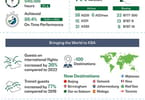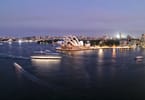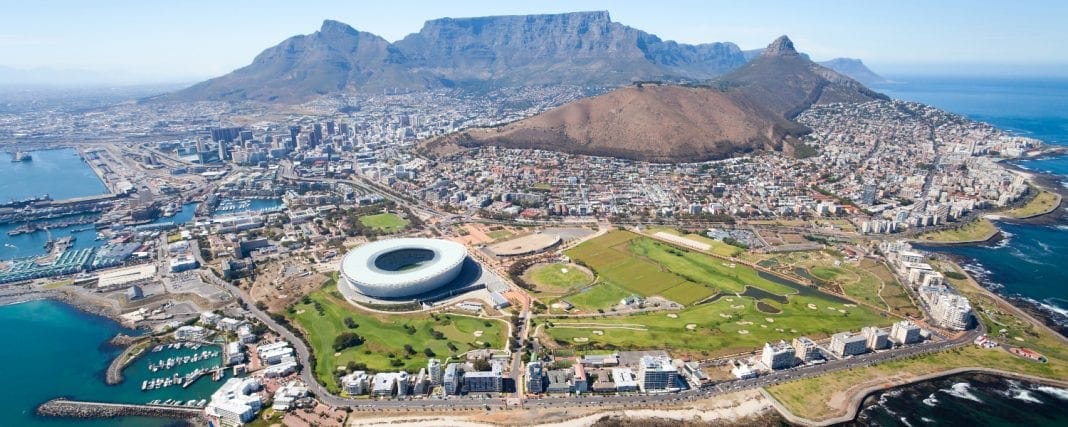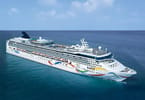As Seychelles looks for ways to grow its economy further, officials have steered towards the idea of Marine aquaculture (Mariculture). Mariculture refers to the culturing of marine species in sea pens, on the seafloor, or suspended in the water column or in on-land, man made systems such as ponds or tanks.
The concept is not new to Seychelles. In 1989, the Island Development Company (IDC) and the Seychelles Marketing Board (SMB) established a prawn farm on the largest coralline island of Seychelles, Coetivy. The farm specifically cultured the Black Tiger Prawn, which is renowned globally for its exquisite taste. The operation was later abandoned in 2009 due to financial constraints, leaving the once beautiful island covered in concrete scars that are still apparent today.
There is also a currently operational black pearl oyster farm situated on Praslin, the second-most populated island of Seychelles. The farm was established in 1995, and produces the black lipped oyster and winged oyster specifically for the retailed jewelers market.
The newly emerging mariculture endeavor has identified four finned-fish species for the pilot project. They include the brown-marbled grouper, the iconic red emperor snapper, the mangrove snapper and the snub-nosed pompano. The fish produced will be almost exclusively for export and it is hoped that the industry will boast between 20,000 and 50,000 tonnes per annum.
Aquaculture brings with it several benefits (if it is done right). Mainly, it can reduce fishing pressure from wild stock. With the increasing demand for seafood globally, aquaculture produces a continuous food supply. This would be especially useful during the South-East Monsoon in Seychelles where fish stocks are limited due to rough seas. The industry can also create new job sectors, offering skilled opportunities in science and technology, thus expanding the local workforce.
Unfortunately, aquaculture also has significant environmental disadvantages. escapees may pose a threat to wild species. Cultured fish will most likely be reared from hatchlings and throughout time cause genetic dilution. If one of these fish escape into the wild and manages to breed with a wild specimen, drastic genetic loss may take place causing a disastrous rippling effect in nature. Furthermore, the methods that will be incorporated in Seychelles include floating pens. These pens allow for waste materials such as fecal matter and uneaten food scraps to be deposited on the seafloor which can be carried by sea currents towards neighbouring coral reefs, seagrass habitats and mangrove forests causing possible detriment to these vital ecosystems.
In addition this waste material can be the source of an emerging artificial food chain. Uneaten food may attract fish from the wild towards the pen, with it brings larger predators, such as sharks which may add an increased risk to swimmers. Other major environmental concerns include the use of a variety of chemicals, including antifoulants, pesticides, and antibiotics, which can have negative effects on marine ecosystems or even human health.
The relevant authorities in Seychelles had hosted several public consultations with international consultants of the project present to address any questions. I personally attended several of the meetings to gain an insight into the views of the public. It was made clear that the majority of the citizens present at the meetings were against the project altogether. Several concerns were raised, such as why local scientific expertise was not consulted in the development phase instead of relying solely on foreign consultants to decide the fate of the project? Another interesting point that was raised was why were more sustainable species, such as shellfish, not considered?
The major issue raised, however, was the fear of possible increase in shark activity. The consultants were quick to state that there is no scientific proof that shark frequency is increased with aquaculture pens. However, several scientific studies done around the world have demonstrated that sharks do in fact show increased activity in areas containing aquaculture pens, thus increasing risks to human attacks (e.g.,Galaz & de Maddalena 2004, NOAA 2005). Looking closer to Seychelles, a recent publication in the African Journal of Marine Science demonstrated the large bull sharks are showing high site fidelity to aquaculture pens around Reunion Island (Loiseau et al. 2016). Although shark attacks on humans are a rare occurrence, the fact remains that increased shark activity in coastal areas that are prominent swimming spots by tourists and locals are going to be put under greater risk.
Back in 2012, Seychelles was smeared over international media after there were two fatal shark attacks that occurred within weeks from each other, and in the same bay on Praslin Island. The cause of the attacks where most likely due to constant food disposal from yachts and other pleasure boats that frequently docked in the area. This theory was considered most likely by shark experts that were leading the investigation. These chumming activities may have altered large shark feeding behaviour, thus attracting them to the bay where the attacks happened. Could the aquaculture pens in Seychelles cause the same effect?
Although there is a great downside to aquaculture, all of these risks can be managed to a bare minimum if strict protocols are followed. Let us not forget that tourism remains the main pillar of the Seychelles Economy. Venturing into other avenues of economic growth may prove to be an even greater asset to Seychelles. However, one needs to question whether it is worth the risk.
Article by Ameer Ebrahim, Environmental Consultant
WHAT TO TAKE AWAY FROM THIS ARTICLE:
- Mariculture refers to the culturing of marine species in sea pens, on the seafloor, or suspended in the water column or in on-land, man made systems such as ponds or tanks.
- Several concerns were raised, such as why local scientific expertise was not consulted in the development phase instead of relying solely on foreign consultants to decide the fate of the project.
- Looking closer to Seychelles, a recent publication in the African Journal of Marine Science demonstrated the large bull sharks are showing high site fidelity to aquaculture pens around Reunion Island (Loiseau et al.






















